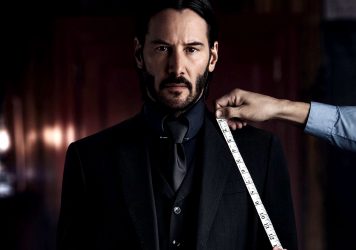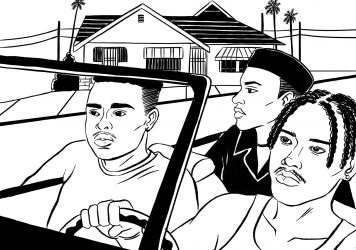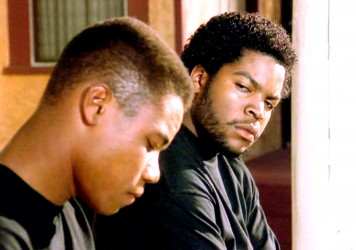
There’s been a recent wave of iconoclasm in rap music, an inevitable shift as a relatively young genre matures. Tupac Shakur has come under fire from the likes of Lil Xan, who has described the rap icon’s music as ‘boring’. This new generation of artists have grown up with different role models, and cultural touchstones such as Scarface now appear to be losing their influence.
Brian De Palma’s 1983 film follows Tony Montana’s violent journey from penniless Cuban immigrant to millionaire cocaine kingpin. Considering that many black Americans can relate to growing up marginalised and poor, it’s not hard to see why Montana’s single-minded pursuit of the American Dream resonated with so many rappers from hip hop’s golden age.
An entire book could be written about Scarface’s impact on hip hop culture; there are at least three contemporary artists whose rap names derive from the film – French Montana, Chief Keef aka Sosa and Brad “Scarface” Jordan.
The mythology surrounding Scarface peaked with the emergence of Mafioso Rap in the mid-’90s; throughout the Clinton administration Pacino’s character was consistently referenced in rap music more often than the president. Sub-genre defining projects such as Raekwon’s ‘Only Built 4 Cuban Linx’ are littered with vocal samples, while Jay-Z famously once jibed, “Scarface the movie did more than Scarface the rapper to me”.
Street rappers talk of the life lessons buried within in the film’s 170-minute runtime. Both The Notorious BIG and NWA-era Ice Cube have songs which remind listeners of the famous maxim: ‘Don’t get high on your own supply’.
Scarface’s influence has waned in recent years, however, and now John Wick seems to be the new vogue for hip hop, fulfilling as it does a violent niche. Keanu Reeves plays the titular antihero who embarks on a murderous gun-fu rampage after a group of mobsters raid his home and kill his dog. The thrilling action-set pieces and seemingly indestructible protagonist makes the film a natural successor to De Palma’s bloody crime epic.
John Wick was a slow burn hit at the US box office, exceeding initial commercial expectations. At the time of writing, a television series and third movie are in the works. The film’s impact on hip hop culture was instantly felt and has only grown in the years since its release (it’s worth noting that Chicago rapper-actor Common played a prominent role in the 2017 sequel). In 2015, the hip hop trio Migos released ‘John Wick’, in which each member raps in character – “All black, one gunman / John Wick, that’s a bad man”, drawls Quavo in the chorus.
John Wick is commonly cited as a shorthand for retaliation or retribution: “John Wick, I don’t leave any witnesses,” says Brockhampton’s Dom McLennon, while Fat Joe raps, “I got my car back, I’m John Wick”, on the DJ Khalid track ‘Billy Ocean’. Rappers are even starting to name themselves after the film, with Sniper Gang affiliate John Wicks currently making a name himself in South Florida’s buzzing rap scene.
According to Rap Genius, references to John Wick in rap music have increased incrementally since 2014. Last year 0.0005 per cent of all rap songs mentioned John Wick, and as the franchise continues to expand it looks as though Keanu Reeves’ character will eventually supplant Tony Montana as hip hop’s preeminent anti-hero.
Jack Kavanagh is the editor of Culture Hash, a blog on popular culture and music.
Published 18 Apr 2018

By Henry Bevan
What function does Luca Mosca’s minimalist costume design serve in this superlative action franchise?

By Thomas Hobbs
Screenwriter Tyger Williams reflects on the legacy of the Hughes Brothers’ controversial crime saga, which turns 25 this year.

By James Clarke
John Singleton’s South Central LA story delivered a powerful universal message that still rings true today.